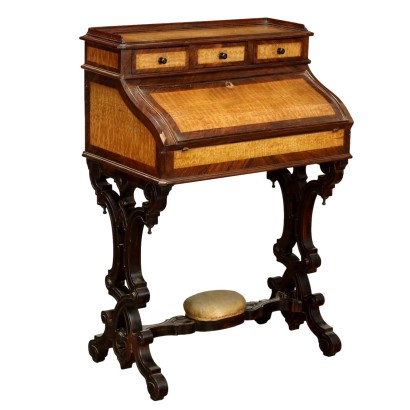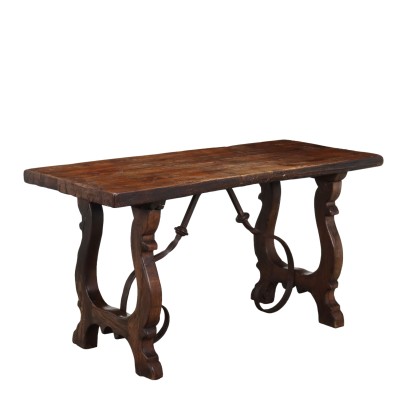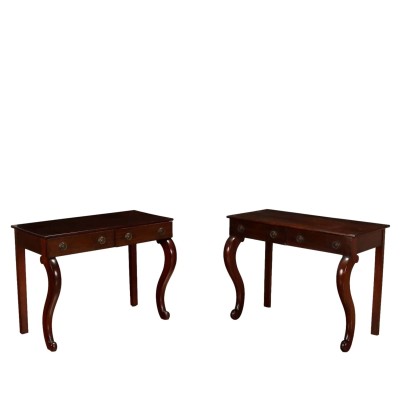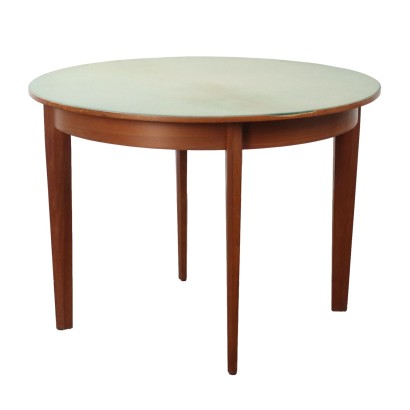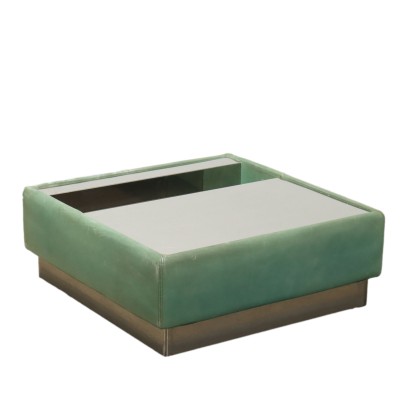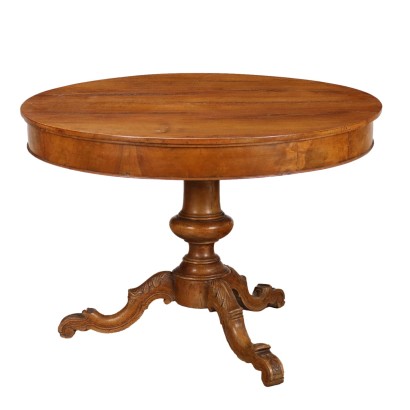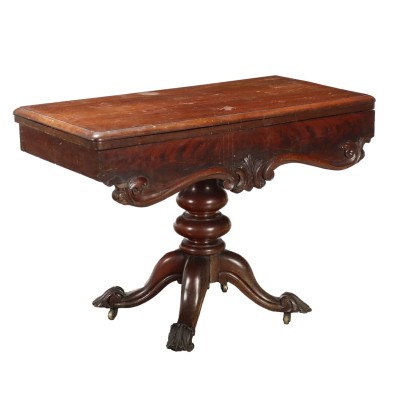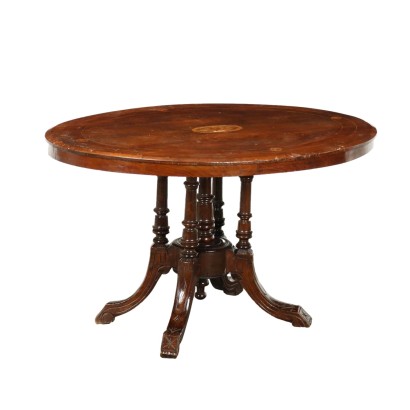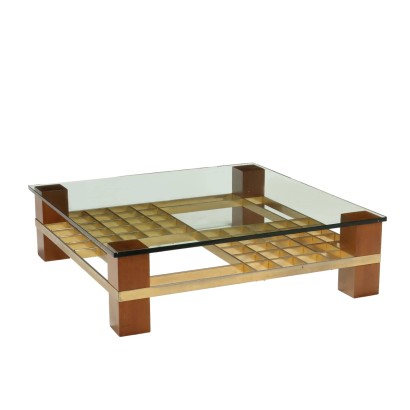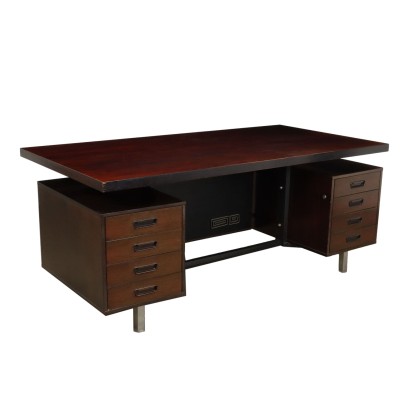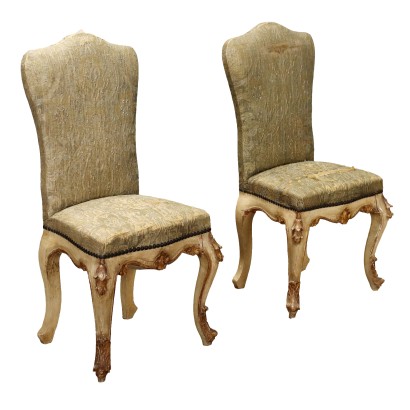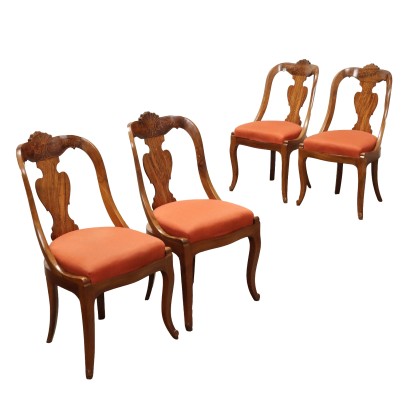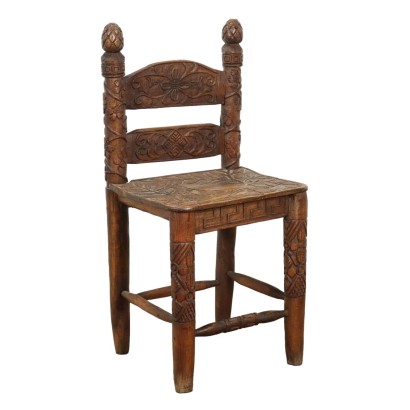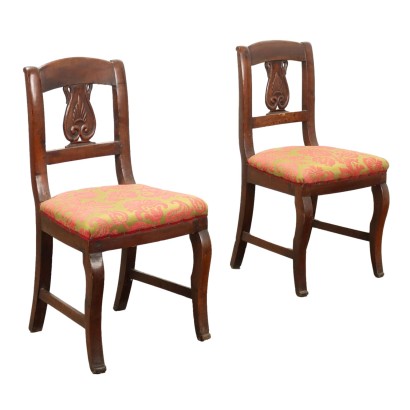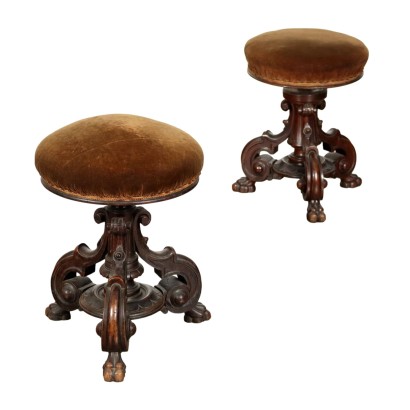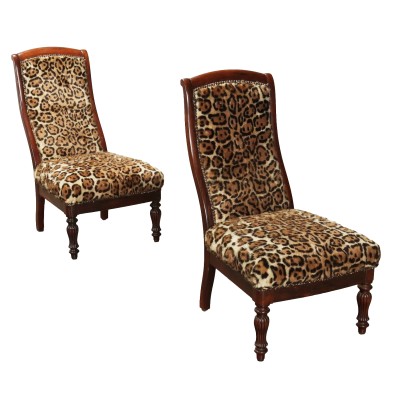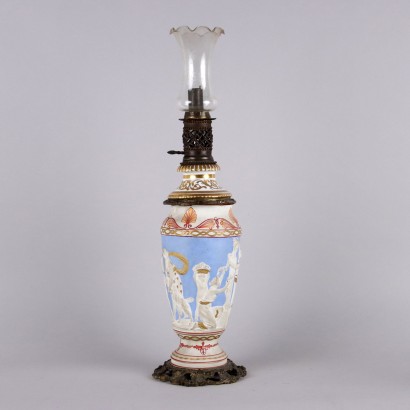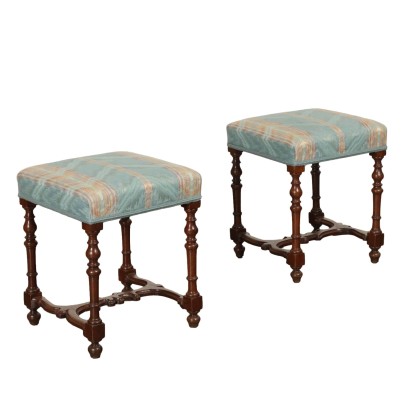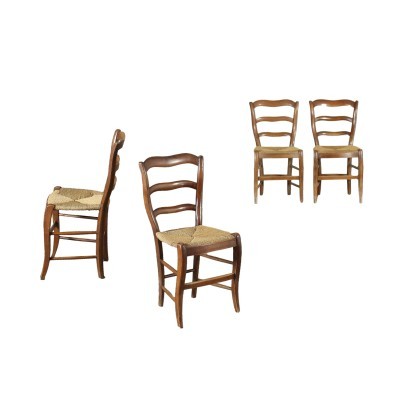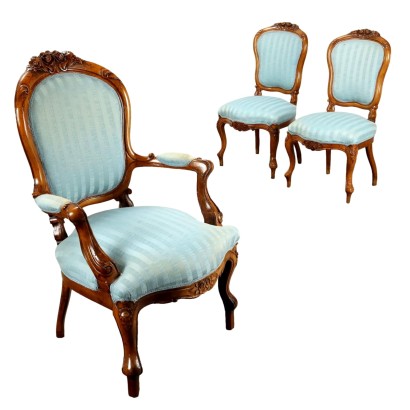Davenport Walnut England XIX Century - England Third Quarter XIX Century
Features
England Third Quarter XIX Century
Age: 19th Century / 1801 - 1900
Origin: Italy
Description
English Davenport equipped with feet with wheels, on one side it has a row of four drawers, while on the other they are only simulated. The inclined upper shelf has a Moroccan insert and can be lifted, this backsplash with drawer and finished with a railing.
Product Condition:
Product that due to age and wear requires restoration and resumption of polishing.
Dimensions (cm):
Height: 82
Width: 53
Depth: 57
Additional Information
Age: 19th Century / 1801 - 1900
19th Century / 1801 - 1900Main essence:
Walnut
Walnut wood comes from the plant whose botanical name is juglans regia , probably originally from the East but very common in Europe. Light or dark brown in color, it is a hard wood with a beautiful grain, widely used in antique furniture. It was the main essence in Italy throughout the Renaissance and later had a good diffusion in Europe, especially in England, until the advent of mahogany. It was used for solid wood furniture and sometimes carvings and inlays, its only big limitation is that it suffers a lot from woodworm. In France it was widely used more than anything else in the provinces. In the second half of the eighteenth century its use decreased significantly because mahogany and other exotic woods were preferred.Oak
Under the name of oak or oak various types of woods derived from plants of the genus quercus are grouped. They are always resistant, hard and compact woods. Oak is lighter than oak, both are used for more rustic furniture or for the interiors of French and English antique furniture. In other processes it was gradually replaced by the advent of exotic woods considered more valuable since the 18th century.Other customers have searched:
Scrittoi, tavolo, scrivania..
Approfondimenti
Se ti interessano tavoli, tavolini, tavoli a vela, scrivanie, scrittoi e consolle dai un'occhiata ai nostri approfondimenti sul blog...
Classic Monday: da un pezzo dei nostri magazzini alla storia dell'antiquariato
L'antiquariato dalla A alla Z: il Dizionario dell'Antiquariato
Il dizionario dell'antiquariato - Lastronatura
Il dizionario dell'antiquariato - Mascherone
Il dizionario dell'antiquariato - Natura morta
Il dizionario dell'antiquariato - Opificio
Il dizionario dell'antiquariato - Pastiglia
Il dizionario dell'antiquariato - Savonarola
Il dizionario dell'antiquariato - Rosone
Due eccezionali scrivanie di produzione lombarda
Uno scrittoio San Filippo dalle forme eleganti e ricercate
Sui tavoli:
Il Neobarocco in un grande tavolo dell'800
Il Tavolo a fratino
Sui tavolini:
Breve storia dei tavolini
Un tavolino impero lombardo: segno di egemonia politica
Il tavolino da gioco, questo sconosciuto
Il dizionario dell'antiquariato – tavolino a Commesso
Sulle consolle:
Una superba consolle austriaca
L'attenzione neoclassica per i dettagli in una consolle torinese decorata a pastiglia
Una raffinata consolle demi-lune piemontese neoclassica
L'estetica elegante e raffinata di una Consolle fratinata
Simili ma diverse: una consolle Luigi Filippo e una umbertina a confronto
...e alle presentazioni su FineArt
Tavoli antichi:
Tavolo campionario lapideo, Roma, Opificio Raffaelli
Tavolo a vela, attribuibile a Luigi e Angiolo Falcini
Tavolo attribuibile a Luigi e Angiolo Falcini
Gueridon, Regno delle Due Sicilie, primo quarto XIX secolo
Tavoli modernariato e design:
Archivio Borsani, patrimonio di memorie e saperi
Tavolo anni '40 ABV
Tavolo Mario Vender Anni '60
Tavolo anni '50 ABV
Tavolo '522' Gianfranco Frattini per Bernini
Tavolo 'Barium' Luciano Frigerio
Tavolo anni '50, Manifattura Italiana
Scrittoi e scrivanie:
Scrivania Anni '50
Scrittoio, Marco Calestrini, Firenze, ultimo quarto del XVIII secolo
Scrittoio, Antonio Mascarone, inizi XIX secolo
Scrittoio, Arthur Blain, Liverpool 1840 ca.
Scrittoio a dorso d'asino, Piacenza, metà XVIII secolo
Scrittoio, Antonio Mascarone, inizi XIX secolo
Consolle e tavoli parietali:
Consolle a pastiglia
Tavolo parietale, Firenze 1780-1785ca.
Consolle inglese, metà XIX secolo
Consolle parietale
Coppia di consolle in pietre laviche
Consolle anni '50, manifattura italiana
Tavolini antichi:
Coppia di tavolini Tomaso Buzzi, attribuiti
Tavolino da gioco, Bottega Giuseppe Maggiolini, inizi XIX secolo
Tavolino piano commesso, Toscana, Inghilterra, Metà XIX Secolo
Tavolino Piano Commesso, Amic Hotton (attribuito a ), XIX Secolo
Tavolini modernariato:
Tavolino anni '50
Tavolino anni '40 ABV
Tavolino anni '60
Approfondimenti
Se ti interessano tavoli, tavolini, tavoli a vela, scrivanie, scrittoi e consolle dai un'occhiata ai nostri approfondimenti sul blog...Classic Monday: da un pezzo dei nostri magazzini alla storia dell'antiquariato
L'antiquariato dalla A alla Z: il Dizionario dell'Antiquariato
Il dizionario dell'antiquariato - Lastronatura
Il dizionario dell'antiquariato - Mascherone
Il dizionario dell'antiquariato - Natura morta
Il dizionario dell'antiquariato - Opificio
Il dizionario dell'antiquariato - Pastiglia
Il dizionario dell'antiquariato - Savonarola
Il dizionario dell'antiquariato - Rosone
Due eccezionali scrivanie di produzione lombarda
Uno scrittoio San Filippo dalle forme eleganti e ricercate
Sui tavoli:
Il Neobarocco in un grande tavolo dell'800
Il Tavolo a fratino
Sui tavolini:
Breve storia dei tavolini
Un tavolino impero lombardo: segno di egemonia politica
Il tavolino da gioco, questo sconosciuto
Il dizionario dell'antiquariato – tavolino a Commesso
Sulle consolle:
Una superba consolle austriaca
L'attenzione neoclassica per i dettagli in una consolle torinese decorata a pastiglia
Una raffinata consolle demi-lune piemontese neoclassica
L'estetica elegante e raffinata di una Consolle fratinata
Simili ma diverse: una consolle Luigi Filippo e una umbertina a confronto
...e alle presentazioni su FineArt
Tavoli antichi:
Tavolo campionario lapideo, Roma, Opificio Raffaelli
Tavolo a vela, attribuibile a Luigi e Angiolo Falcini
Tavolo attribuibile a Luigi e Angiolo Falcini
Gueridon, Regno delle Due Sicilie, primo quarto XIX secolo
Tavoli modernariato e design:
Archivio Borsani, patrimonio di memorie e saperi
Tavolo anni '40 ABV
Tavolo Mario Vender Anni '60
Tavolo anni '50 ABV
Tavolo '522' Gianfranco Frattini per Bernini
Tavolo 'Barium' Luciano Frigerio
Tavolo anni '50, Manifattura Italiana
Scrittoi e scrivanie:
Scrivania Anni '50
Scrittoio, Marco Calestrini, Firenze, ultimo quarto del XVIII secolo
Scrittoio, Antonio Mascarone, inizi XIX secolo
Scrittoio, Arthur Blain, Liverpool 1840 ca.
Scrittoio a dorso d'asino, Piacenza, metà XVIII secolo
Scrittoio, Antonio Mascarone, inizi XIX secolo
Consolle e tavoli parietali:
Consolle a pastiglia
Tavolo parietale, Firenze 1780-1785ca.
Consolle inglese, metà XIX secolo
Consolle parietale
Coppia di consolle in pietre laviche
Consolle anni '50, manifattura italiana
Tavolini antichi:
Coppia di tavolini Tomaso Buzzi, attribuiti
Tavolino da gioco, Bottega Giuseppe Maggiolini, inizi XIX secolo
Tavolino piano commesso, Toscana, Inghilterra, Metà XIX Secolo
Tavolino Piano Commesso, Amic Hotton (attribuito a ), XIX Secolo
Tavolini modernariato:
Tavolino anni '50
Tavolino anni '40 ABV
Tavolino anni '60
Product availability
The product can be seen at Cambiago
Immediate availability
Ready for delivery within 2 working days from ordering the product.
Alternative proposals
It could also interest you














